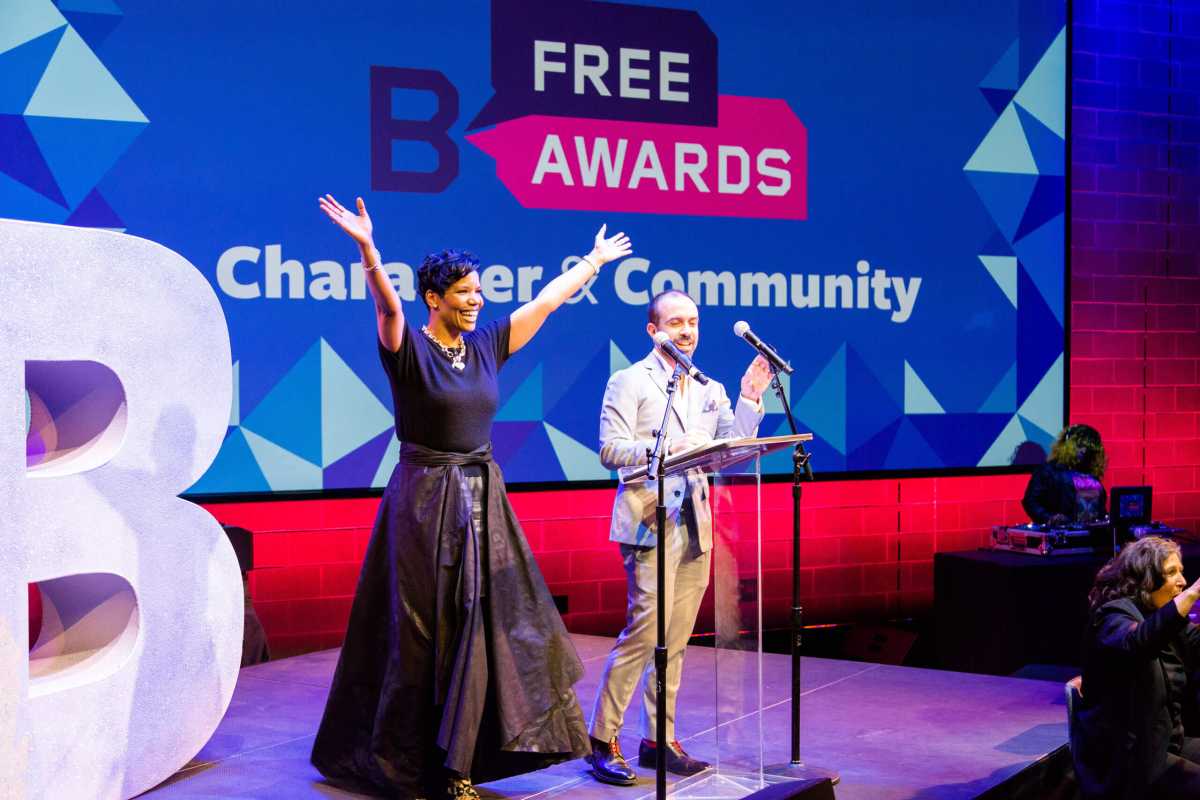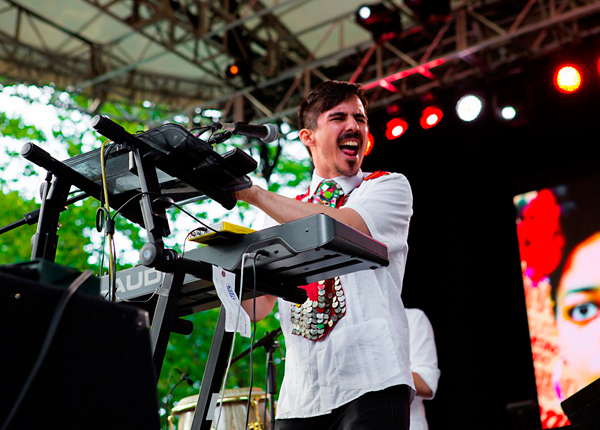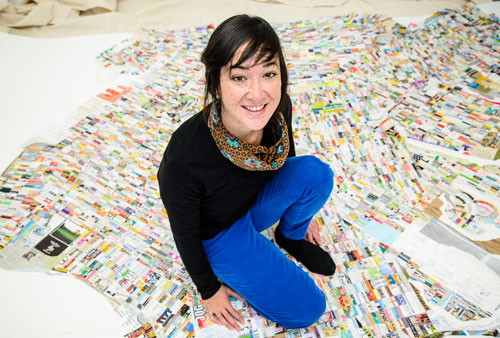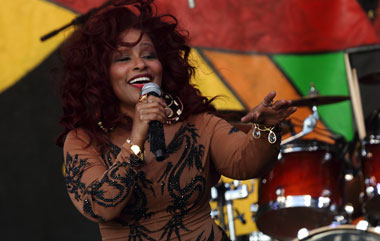For 35 years, BRIC has run Brooklyn’s pioneer public TV and radio program, training storytellers how to use filming and editing equipment to create their own Brooklyn-centric TV shows and podcasts to send across the airwaves. On April 22, the organization will celebrate the program’s anniversary and some of its best recent shows at the 10th annual B Free Awards.
The Brooklyn Free Speech TV and Podcast Network was created to provide cheap, accessible media education to Brooklynites who wanted to hone their film and TV skills. To this day, BRIC offers regular classes in film production, interview techniques, editing, and more – and offers use of their equipment, podcast studios, and airwaves to creators.
Dozens of shows currently play across the Network’s airwaves every day, in a host of genres and more than 16 languages.
There are the “staples” that air regularly, like a show called “1001 Ways to Relieve Stress,” explained On-Air Promotions Manager Alease Annan, and “Millionaire Lifestyle TV,” a self-recorded inspirational show hosted by Sheryl Walker — who won the B. Free People’s Choice Award in 2018.
But the B. Free awards recognize shows that have aired in the last year. This year, that includes shows and podcasts like June Marie Davis’ “Covid Buddies,” Philip Garrison’s “Breaking Ground: America’s First Black Tomb Guard,” and Marcus Watkins’ cooking show “When She No Longer Cooks For You, Here’s What You Do.”
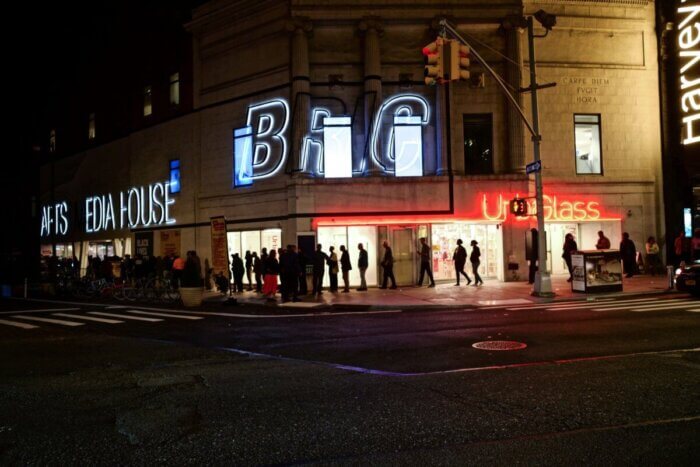
“I watched all of the shows that were submitted this year for the B. Free Awards,” Annan said. “[Watching Covid Buddies] I sat at my desk and I laughed so hard, I could not breathe for a minute.”
The Free Speech Network airs a “huge variety” of shows, she said, comedies and dramas and more, each with their own strengths.
When the submissions are in, BRIC assembles a team of staffers from across the organization to watch each entry and choose the winners in each category. Each staffer brings their own unique perspective depending on the work they do at BRIC — some run the iconic Celebrate Brooklyn event in the summer, some run the art gallery, some help with the media education programs.
When they’re picking the winners in each of 16 categories — including “B Cinematic” for script-based productions and “B Harmonious” for musical programs — the staff examines each one on its own merits, not how it looks compared to other shows or podcasts.
“We’re just really looking at the community of it, the heart of it,” Annan said. “Yes, sometimes production value comes into play, but it’s also thinking about the hyperlocal stories that our producers are covering … that may not be covered.”
That could be a movement or event specific to one Brooklyn neighborhood — a block party, a protest, a local icon — that the producer covers thoroughly and affectionately.
“Those are special,” Annan said. “I don’t think there’s anything in particular, I think when we see it, we’ll know it.”
There’s also the People’s Choice Award, the only B. Free award voted on by the public. Each submission is listed on the B. Free Awards page, and Brooklynites can flip through the shows and cast their votes for their favorite up until the night of the show.
Locals are encouraged to attend the awards show — it’s always a packed house, Annan said, with food and drinks and a photobooth to enjoy while the winners celebrate. And if they’re feeling particularly inspired, they can sign up for a media course and become a creator themselves.
Annan herself took part in BRIC’s documentary intensive course, where she and other participants learned how to plan and create movies documenting real-life events.
“They work as a cohort and as a team, go out, shoot, learn storyboarding, learn the real true art of storytelling,” she said. “How do you tell that story so it draws your viewer in? We have really great instructors here who will take you step-by-step.”
BRIC offers dozens of other courses — free courses on how to editing software, a $5 class called “Interviewing for TV and Film,” a $10 “Fundamentals of Screenwriting” course, and more, and the media lab is open to graduates to use after they finish.
“We always make room for everyone, there’s always space for everyone here, no matter where they’re from, race, creed, culture, everything,” Annan said. “It’s just important that we’re serving all of our communities.”


